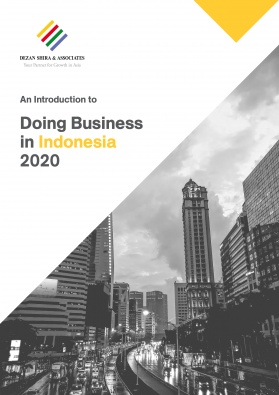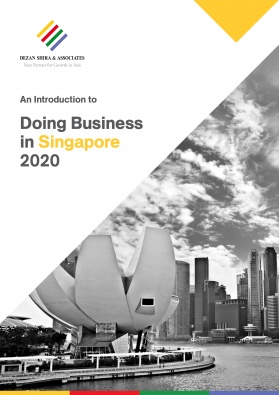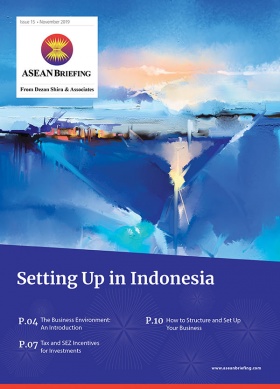Indonesia Issues Tax Incentives for COVID-19 Support
- The Indonesian government has granted tax incentives and deductions for domestic taxpayers who have contributed to tackling the COVID-19 pandemic through the issuance of Reg 29/2020.
- Taxpayers who manufacture medical devices and equipment for the government or have donated funding through government agencies handling the virus are eligible for the incentives.
- Healthcare workers assigned to COVID-19 cases will not pay income tax on their salaries or bonuses.
- Certain listed companies on the Indonesian Stock Exchange can also enjoy a reduced corporate income tax rate of 19 percent for the 2020-2021 fiscal year.
The Indonesian government issued Regulation 29 of 2020 (Reg 29/2020) in mid-June, which grants tax deductions and incentives for individuals and businesses who have supported the government’s fight against the COVID-19 pandemic.
The regulation highlights that eligible individuals and businesses are those who have provided financial and non-financial donations, human resources support for the medical sector, contributed medical devices and equipment, and the repurchase of shares through the Indonesian Stock Exchange, among others.Indonesia’s previous tax incentives were focused on helping 18 selected industries mitigate the economic impact caused by the pandemic. This includes reducing the corporate income tax (CIT) rate from 25-22 percent for the 2020-2021 tax year. Furthermore, employees working in these industries earning less than 200 million rupiah (US$13,900) per annum are exempted from paying income tax.
Facility for producers of medical devices or household health supplies
Under Reg 29/2020, domestic taxpayers can enjoy a net income reduction of 30 percent of the costs incurred to produce medical devices or household health supplies to fight COVID-19. This in turn, will reduce the amount of income tax the taxpayer would need to pay.
The medical devices mentioned in the regulation are:
- Surgical masks and N95 respirators;
- Personal protective equipment in the form of heavy-duty aprons, goggles, face shields, medical coveralls, surgical caps, shoe covers, and waterproof boots;
- Examination gloves;
- Surgical gloves;
- Ventilators; and
- Diagnostic test reagents for COVID-19.
Household health supplies cover the following categories:
- Antiseptic hand sanitizers; and
- Disinfectants
To be eligible, the taxpayer will need to submit an expense report to the Directorate-General of Tax either through its e-service system or going to the tax office where the taxpayer is registered. The taxpayer must also submit their annual tax returns for the relevant tax year.
This incentive is available until September 30, 2020.
Donations are now tax-deductible
Domestic taxpayers that have donated to the National Disaster Management Agency (BNPB), any Regional Disaster Management Agency, the Ministry of Health, the Ministry of Social Affairs, or other institutions and organizations appointed by the government to combat COVID-19, can now deduct the value of their contributions from their income tax bill.
For taxpayers donating to organizations that are not government agencies, they must ensure such organizations have a mandate from the government and possess a tax identification number. They must also provide a receipt of proof of payment.
The type of donations falls under the following criteria:
- Monetary;
- Goods;
- Services; or
- The use of assets (without compensation).
The value of donations made in the form of goods is determined by:
- The acquisition value – if the donated goods have not depreciated;
- Book value – if the donated goods have depreciated; or
- The cost of the goods sold – if the goods are self-produced.
For the value of donations made in the form of services, these are based on the value of the costs of the service and/or the use of the assets.
Taxpayers will need to submit proof of donations to the Directorate-General of Tax along with their annual tax return for the relevant year.
Leasing assets (with compensation)
Taxpayers who lease their lands, buildings, and other assets to the government to mitigate COVID-19 will pay no taxes on the rent incurred as regulated in government regulation 34 of 2017.
This incentive is available until September 30, 2020.
Public companies to pay lower tax rates
Listed companies on the Indonesian Stock Exchange who buy back shares, are eligible for CIT rates that are three percent lower than those stipulated in the National Economic Recovery (NER) program.
Under the NER, the government has lowered the CIT rate for the 2020-2021 fiscal year from 25-22 percent. The rate will fall again to 20 percent for the 2022 fiscal year.
Listed companies, however, can immediately enjoy a 19 percent CIT rate for the 2020-2021 fiscal year and 16 percent for 2022.
To be eligible, only listed companies who have more than 40 percent of their total shares traded on the exchange can benefit from the tax cut. Moreover, these companies must have at least 300 separate parties who own the shares at no more than five percent ownership each. These other owners must not be affiliated with the listed company or with each other.
No income tax for health workers
Health workers assigned to COVID-19 cases will not have to pay income tax on their salaries or bonuses. This covers doctors, nurses, ambulance drivers, and administrative staff, among others.
About Us
ASEAN Briefing is produced by Dezan Shira & Associates. The firm assists foreign investors throughout Asia and maintains offices throughout ASEAN, including in Singapore, Hanoi, Ho Chi Minh City and Jakarta. Please contact us at asia@dezshira.com or visit our website at www.dezshira.com
- Previous Article Indonesia Issues Regulation on Taxing Digital Services
- Next Article How to Take Advantage of New Incentives in Thailand’s Medical Industry








